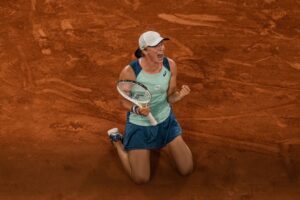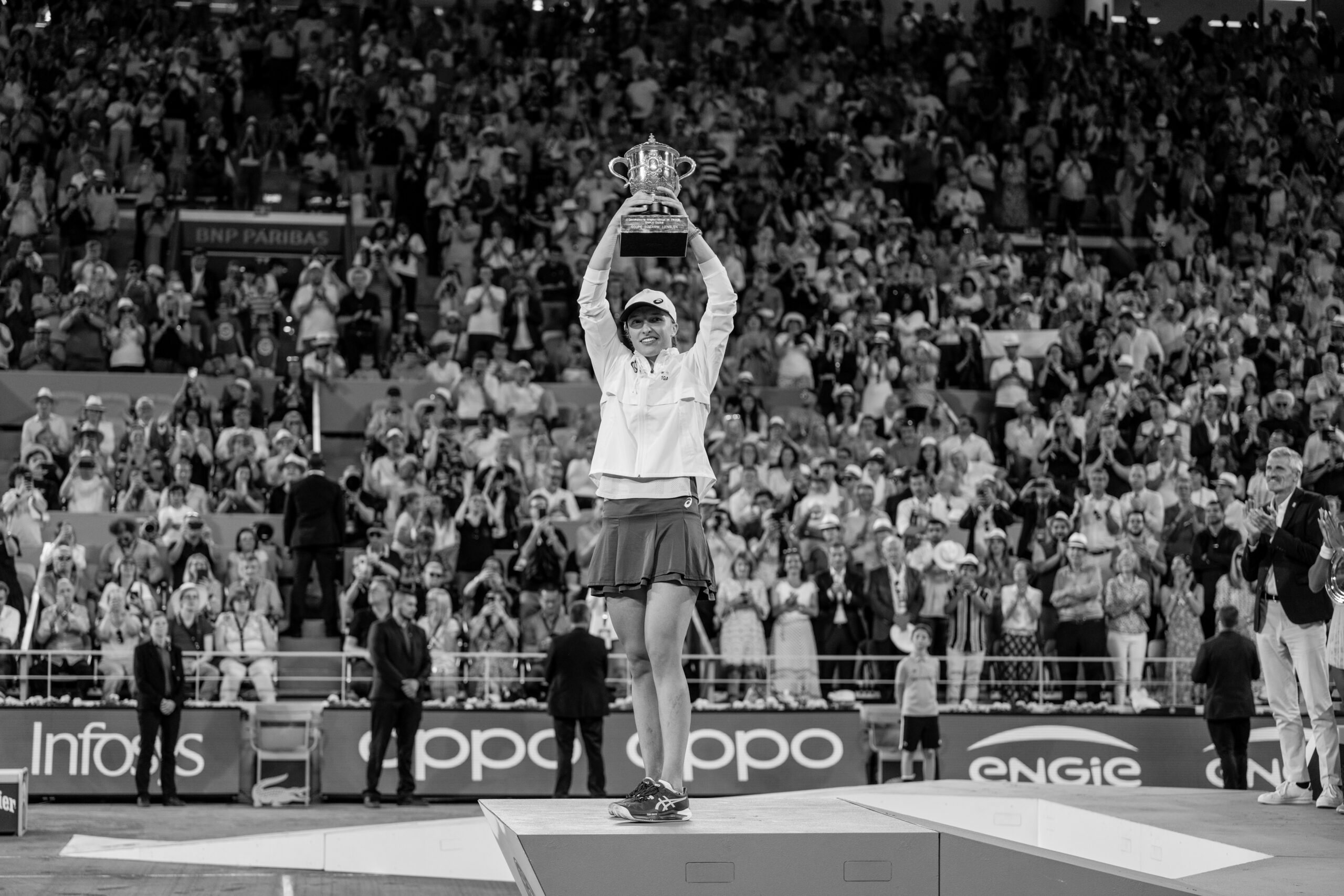When Ash Barty announced her retirement in March, few people were more shocked than Iga Swiatek.
The Australian had just won her home Grand Slam, the first woman to do so since 1978, and was riding high at the top of the world rankings. Behind her, Swiatek had begun the year well, reaching the semi-finals in Melbourne and had won back to back titles in Doha and Indian Wells. It seemed like they were on their way to building a genuine rivalry.
Swiatek was sad and worried she would lose motivation, in much the same way that the sudden retirement of Bjorn Borg left John McEnroe feeling bereft, his main rival gone.
“For sure at the beginning I was feeling a little bit overwhelmed and a little bit maybe scared of what’s going to happen,” the ever-thoughtful and eloquent Pole told reporters at the French Open earlier this month.
“I was feeling pretty sad, because I wasn’t expecting that Ash is going to retire. I thought that she has the best things out there. So it was just a shame for me that we are not going to be able to play against each other.
“Also, because having a thought that maybe some day I’m going to be able to play the same kind of tennis. I mean, to play at the same level and maybe really compete against Ash and maybe win some matches against her, it was really motivating me.”
Suddenly, with Barty gone, she needed just one match in Miami to become world No 1. It was something that could have been a cause of stress but instead, Swiatek accepted her situation, knuckled down and duly won the Miami Open, the third of six straight titles, which culminated in June in her second Roland-Garros crown.
Swiatek sits alone at the top of the women’s world rankings, with almost twice as many points as the No 2, Anett Kontaveit. For some players, being world No 1 is a burden that sits heavy on their shoulders; for Swiatek, it’s an honour that she is actively embracing.
At 21, Swiatek seems to walk taller than her 5ft 9in, proud of her achievements, confident in herself and yet managing to tread the fine line between belief and arrogance. When she put on a jacket with two stars on it, one for each slam, after her victory at Roland-Garros, she wore it well.








